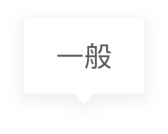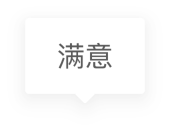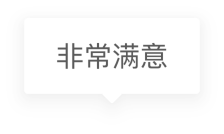Range Download
Operation Guide
- Enable Service
- OSS Overview Page
- OSS Access Domain and Region
- OSS Access Domain Use Rules
- Storage Space Management
- Space overview
- Creating Bucket
- Delete storage space
- Access Permissions Setting
- Cross-domain access setting
- Static website hosting setting
- Incremental data synchronization setting
- Historical data synchronization setting
- Customized Domain Name Setting
- Callback Notification
- Encrypted by Default
- Image Back-to-origin Setting
- Life Cycle Management
- Access Log
- Tag Management
- Transmission Speeding
- Listing setting
- File Management
- Permission Control
- Image Processing Guide
- Introduction
- Access rules for image processing
- Quickly use image service
- Image Zooming
- Image Rotation
- Image Cropping
- Format conversion
- Image Watermark
- Text Watermark
- Obtaining image information
- Face Detection
- Image Porn Identification
- Original image protection of the image
- Customized Delimiter
- Error Response
- Media processing service (previous version)
SDK Document
- Overview
- Compatible S3 Java SDK (Recommended)
- Compatible S3 SDK-Python (Recommended)
- Compatible with S3 SDK-Go
- Compatible S3 SDK-PHP
- Compatible S3 SDK-Android
- Compatible S3 SDK-iOS
- Compatible with S3 SDK-.NET
- Compatible with S3 SDK-Node.js
- Compatible with S3 SDK-Ruby
- Previous Version Java SDK (Not Recommended)
Best practices
- Use S3fs to attach Bucket on the Linux instance
- IAM
- Anti-Leech
- Managing OSS by using CloudBerry
- Outputting pre-signature URL
- Cross-origin Resource Sharing
- Data Migration Tool
- Use S3cmd to Manage OSS
- Use S3 Browser to Manage OSS
- Callback server sets signature verification
- Mobile Application Direct Transmission OSS
- Customized domain supports HTTPS access OSS service
- Big Data Application
- Security
- Security Service
- Baseline Check ServicePenetration Test ServiceIncident Response ServiceVulnerability Scan ServiceCybersecurity Classified Protection Consulting ServiceImportant Cybersecurity Guarantees ServiceInformation Security TrainingSecurity Notification ServiceSecurity Attack and Defense Drill Service
Products
NeuHub
Intelligent Design
Cloud Essentials
Enterprise Applications
Video Service
Developer Services
Management
Monitoring and Operation
云资源管理
不展示在产品目录下
For express and not display
Security
Security Service
Security Management
Data Security
Network Security
System Security
Applications Security
终端安全
Big Data
Big Data & Analytics
数据库
关系型数据库
分布式数据库
网络与 CDN
混合云网络
容器与中间件
Object Storage Service
- Introduction
- Product Pricing
- Getting Started
- Operation Guide
- Enable Service
- OSS Overview Page
- OSS Access Domain and Region
- OSS Access Domain Use Rules
- Storage Space Management
- Space overview
- Creating Bucket
- Delete storage space
- Access Permissions Setting
- Cross-domain access setting
- Static website hosting setting
- Incremental data synchronization setting
- Historical data synchronization setting
- Customized Domain Name Setting
- Callback Notification
- Encrypted by Default
- Image Back-to-origin Setting
- Life Cycle Management
- Access Log
- Tag Management
- Transmission Speeding
- Listing setting
- File Management
- Permission Control
- Image Processing Guide
- Introduction
- Access rules for image processing
- Quickly use image service
- Image Zooming
- Image Rotation
- Image Cropping
- Format conversion
- Image Watermark
- Text Watermark
- Obtaining image information
- Face Detection
- Image Porn Identification
- Original image protection of the image
- Customized Delimiter
- Error Response
- Media processing service (previous version)
- SDK Document
- Overview
- Compatible S3 Java SDK (Recommended)
- Compatible S3 SDK-Python (Recommended)
- Compatible with S3 SDK-Go
- Compatible S3 SDK-PHP
- Compatible S3 SDK-Android
- Compatible S3 SDK-iOS
- Compatible with S3 SDK-.NET
- Compatible with S3 SDK-Node.js
- Compatible with S3 SDK-Ruby
- Previous Version Java SDK (Not Recommended)
- Best practices
- Use S3fs to attach Bucket on the Linux instance
- IAM
- Anti-Leech
- Managing OSS by using CloudBerry
- Outputting pre-signature URL
- Cross-origin Resource Sharing
- Data Migration Tool
- Use S3cmd to Manage OSS
- Use S3 Browser to Manage OSS
- Callback server sets signature verification
- Mobile Application Direct Transmission OSS
- Customized domain supports HTTPS access OSS service
- Big Data Application
- FAQ
- User Agreements
- Api reference
开始与售前顾问沟通
可直接拨打电话 400-098-8505转1
我们的产品专家为您找到最合适的产品/解决⽅案
在线咨询 5*8⼩时
点击咨询1v1线上咨询获取售前专业咨询
企微服务助手
专业产品顾问,随时随地沟通

提交反馈
您对本页面的整体评价?
非常不满意
非常满意











